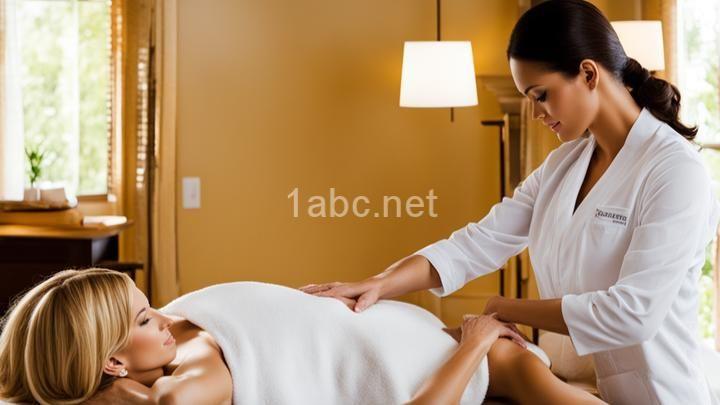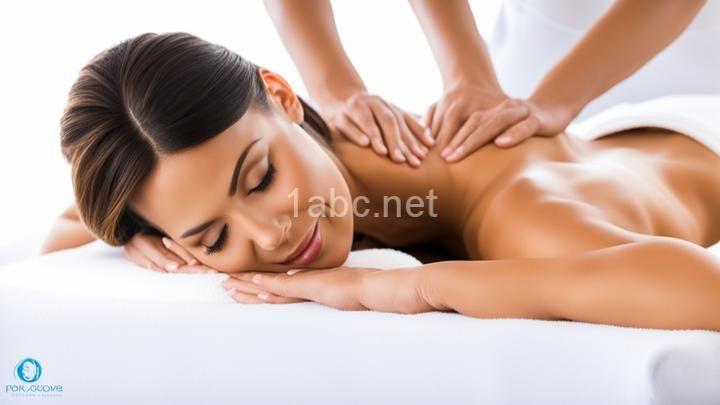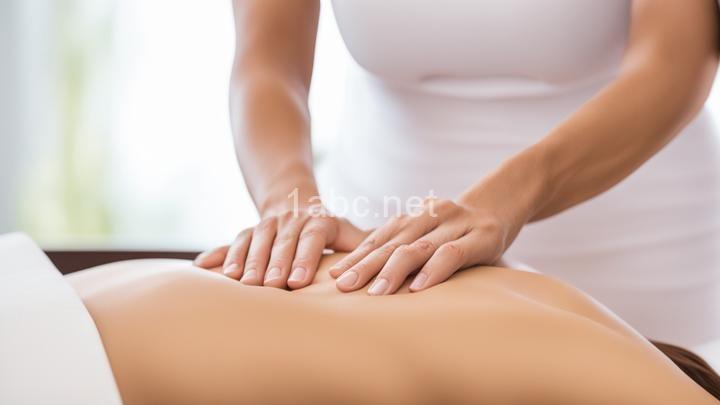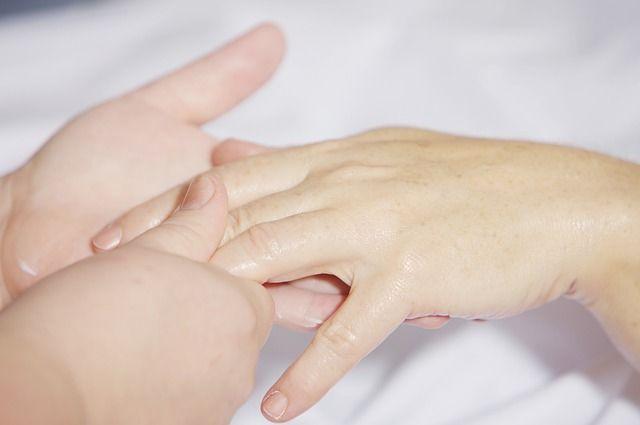Boosting Your Immunity with Essential Oils in Aromatherapy Massage
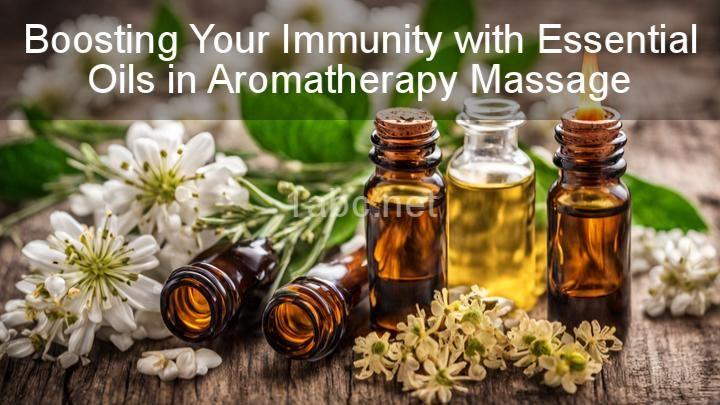
Introduction:
Welcome readers to the blog post! In today's fast-paced world, maintaining a strong immune system is more important than ever. Our immune system plays a crucial role in protecting us from illnesses and diseases, and it is essential to give it the support it needs. One effective way to boost your immune system is through the use of essential oils in aromatherapy massage. In this blog post, we will explore the benefits of essential oils, specific immune-boosting oils, how to incorporate essential oils in aromatherapy massage, and additional lifestyle practices for immune support.
Section 1: Understanding Essential Oils
To start, let's delve into what essential oils are and how they are extracted from plants. Essential oils are highly concentrated plant extracts that capture the essence and fragrance of the plant they are derived from. They are extracted through various methods such as steam distillation, cold pressing, or solvent extraction. These oils contain the natural compounds found in plants, which give them their unique therapeutic properties.
Essential oils offer a wide range of benefits for overall well-being. They have been used for centuries in traditional medicine and are known for their antimicrobial, anti-inflammatory, and immune-boosting properties. Additionally, essential oils can promote relaxation, reduce stress and anxiety, improve sleep, and enhance mood.
There are several ways to use essential oils, one of which is aromatherapy massage. Aromatherapy massage combines the therapeutic benefits of essential oils with the healing power of touch. The massage helps to relax the body and mind, while the essential oils provide additional health benefits.
Section 2: Immune-Boosting Essential Oils
Now, let's explore some specific essential oils that are known for their immune-boosting properties. One popular oil is tea tree oil. Tea tree oil has strong antimicrobial properties and can help fight off bacteria, viruses, and fungi. It stimulates the immune system and can be used to prevent and treat respiratory infections.
Another powerful oil is eucalyptus oil. Eucalyptus oil is renowned for its ability to clear the respiratory tract and relieve congestion. It has anti-inflammatory and decongestant properties, making it an excellent choice for respiratory conditions such as colds, flu, and sinusitis.
Lavender oil is not only known for its relaxing properties but also for its immune-boosting effects. It has antimicrobial properties and can help strengthen the immune system. Lavender oil also promotes restful sleep, which is essential for overall health and immune function.
When choosing essential oils for immune support, it's important to consider your specific needs and preferences. Some oils may work better for certain individuals, so experimentation may be necessary. Additionally, it's crucial to choose high-quality, pure essential oils to ensure maximum effectiveness and safety.
Section 3: Incorporating Essential Oils in Aromatherapy Massage
Now that we understand the immune-boosting properties of essential oils, let's explore how to incorporate them into aromatherapy massage for maximum benefit. When using essential oils topically, it is important to dilute them properly to avoid skin irritation. A general rule of thumb is to use a carrier oil such as sweet almond oil or coconut oil and mix a few drops of essential oil per tablespoon of carrier oil.
Safety precautions should also be observed when using essential oils, especially if you have sensitive skin or any underlying health conditions. It's always a good idea to do a patch test before applying the oil to a larger area of the body. If you experience any adverse reactions, discontinue use.
To perform an aromatherapy massage at home, start by creating a relaxing environment. Dim the lights, play calming music, and ensure the room is at a comfortable temperature. Begin by mixing your chosen essential oil with a carrier oil and warming the mixture slightly. Apply a small amount of the oil blend to your hands and gently massage it onto the skin using long, fluid strokes. Focus on areas that are known to hold tension, such as the neck, shoulders, and back.
Section 4: Additional Lifestyle Practices for Immune Support
In addition to incorporating essential oils in aromatherapy massage, there are several complementary lifestyle practices that can further enhance immunity. A healthy diet rich in fruits, vegetables, whole grains, and lean proteins provides essential nutrients for immune function. Regular exercise helps to improve circulation, reduce stress, and boost the immune system. Managing stress through practices such as meditation, yoga, or deep breathing exercises can also have a positive impact on immunity.
Other natural remedies or practices may complement aromatherapy massage with essential oils. For example, herbal teas, such as chamomile or green tea, can provide immune-boosting benefits. Supplements like vitamin C, vitamin D, and zinc can also support immune function. Additionally, incorporating probiotics into your diet can help improve gut health, which is closely linked to immune health.
Conclusion:
Boosting your immunity is a vital step in maintaining overall well-being. Essential oils in aromatherapy massage offer a natural and effective way to support your immune system. By understanding the benefits of essential oils, specifically immune-boosting oils, and how to incorporate them into aromatherapy massage, you can take charge of your health. Remember to always choose high-quality essential oils, dilute them properly, and follow safety precautions. Additionally, adopting complementary lifestyle practices such as a healthy diet, regular exercise, and stress management can further enhance your immune system. Start incorporating essential oils into your self-care routine today and experience the many benefits they have to offer.
We hope this blog post has provided you with valuable information on boosting your immunity with essential oils in aromatherapy massage. For more articles and products related to essential oils and self-care, be sure to check out our website. Stay healthy and take care!
FREQUENTLY ASKED QUESTIONS
What is aromatherapy massage?
Aromatherapy massage combines traditional massage techniques with the use of essential oils derived from plants. These essential oils are carefully selected for their specific therapeutic properties and are believed to promote relaxation, reduce stress, alleviate muscle pain, and enhance overall well-being. During an aromatherapy massage, the oils are typically diluted in a carrier oil and applied to the skin through gentle massaging movements. The aroma of the oils is also inhaled, which can have a calming effect on the mind and body. This type of massage can be a gentle and soothing experience, providing both physical and mental relaxation.
How does aromatherapy massage help boost immunity?
Aromatherapy massage is believed to help boost immunity through several mechanisms:
- Stress reduction: Aromatherapy massage involves the use of essential oils, which are extracted from various plants. These oils have calming properties and can help reduce stress and anxiety. Chronic stress can weaken the immune system, so by promoting relaxation, aromatherapy massage may indirectly support immune function.
- Anti-inflammatory effects: Some essential oils used in aromatherapy massage, such as eucalyptus, lavender, and tea tree oil, have anti-inflammatory properties. Inflammation is a natural immune response, but excessive or chronic inflammation can be detrimental to health. By reducing inflammation, aromatherapy massage may assist in maintaining a well-functioning immune system.
- Enhanced blood circulation: The physical manipulation of tissues during a massage can improve blood circulation in the body. Improved blood flow allows immune cells and nutrients to travel more efficiently throughout the body, potentially aiding in the strengthening of the immune system.
- Antimicrobial properties: Certain essential oils used in aromatherapy massage, such as tea tree oil and peppermint oil, possess antimicrobial properties. These oils can help fight against harmful microorganisms, reducing the risk of infections that could compromise the immune system.
It is important to note that while aromatherapy massage may have potential benefits for immune function, it should not be considered a substitute for medical treatments or medications. It is always advisable to consult with a healthcare professional for any concerns about immunity or health.
Which essential oils are commonly used in aromatherapy massages for immunity?
In aromatherapy, several essential oils are commonly used in massages to support and boost the immune system. Here are a few examples:
- Eucalyptus: Known for its antibacterial and antiviral properties, eucalyptus oil helps stimulate the immune system and clear congestion in the respiratory system.
- Tea Tree: This oil possesses powerful antimicrobial properties and is often used to combat infections. It is believed to strengthen the immune system and promote overall wellness.
- Lemon: Lemon oil is refreshing and uplifting. It is commonly used to invigorate the mind and body, while also supporting the immune system due to its high concentration of antioxidants.
- Peppermint: Known for its cooling sensation, peppermint oil can help relieve headaches and promote respiratory health. It may also help boost the immune system by improving circulation.
- Frankincense: With its grounding and calming properties, frankincense oil is often used in aromatherapy massages to reduce stress and support relaxation. It is also believed to enhance immune function.
When choosing essential oils for aromatherapy massages, it's essential to consider individual preferences and any specific health concerns. It's always advisable to consult a qualified aromatherapist or healthcare professional for personalized guidance.
How can I incorporate essential oils into my massage routine?
Incorporating essential oils into your massage routine can enhance the overall experience for both you and your client. Here are a few steps to follow:
- Choose the right essential oils: Select oils that complement the goals of your massage. For relaxation, consider lavender or chamomile. For revitalization, try peppermint or eucalyptus. Always make sure to use high-quality, pure essential oils.
- Dilute the essential oils: Essential oils are highly concentrated and should be diluted before use. Mix a few drops of the essential oil with a carrier oil such as sweet almond oil or jojoba oil. The recommended dilution ratio is typically 2-3% essential oil per ounce of carrier oil.
- Test for allergies or sensitivities: Before applying the diluted oil to your client's skin, perform a patch test on a small area to check for any adverse reactions. This step is important to ensure the safety and comfort of your client.
- Apply the oil: Once you have confirmed there are no allergies or sensitivities, apply the diluted oil to your client's skin. Start with a small amount and gradually add more if needed. Massage in gentle, circular motions to help the oils penetrate the skin and release their aromatherapeutic benefits.
- Adjust the oil to client preferences: Communicate with your client about their preferences regarding oil scent and intensity. Some clients may prefer a stronger scent, while others may prefer a milder aroma. Personalize the experience to create a soothing and enjoyable environment.
Remember to always prioritize the well-being and comfort of your client. Following these steps will help you incorporate essential oils into your massage routine effectively.
